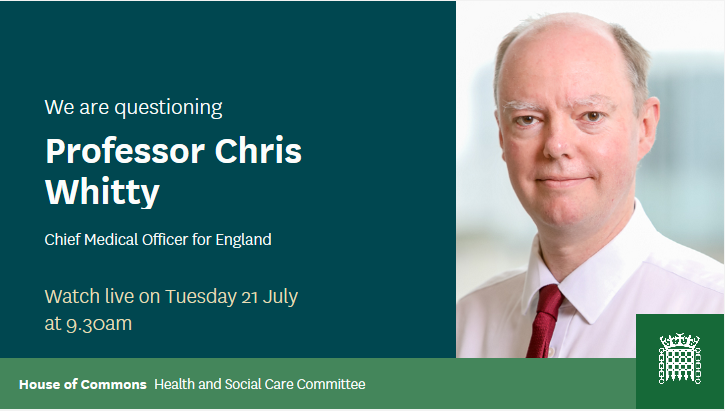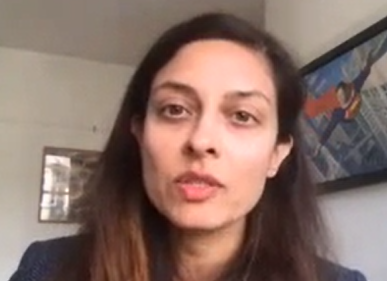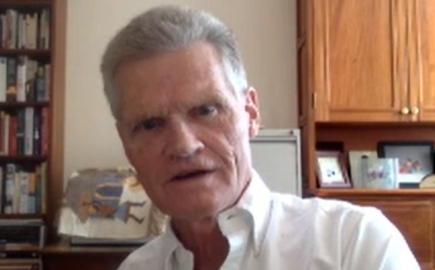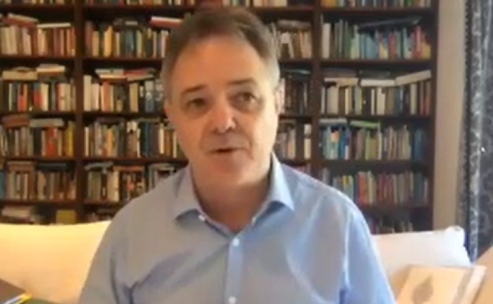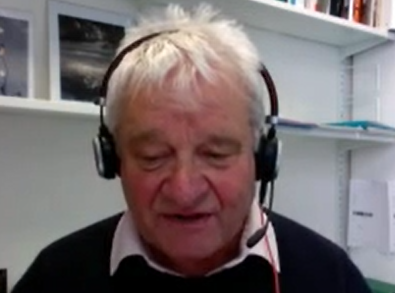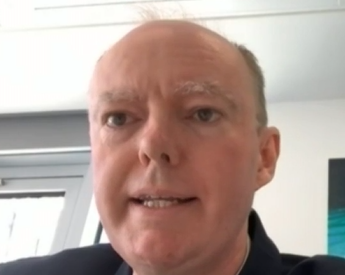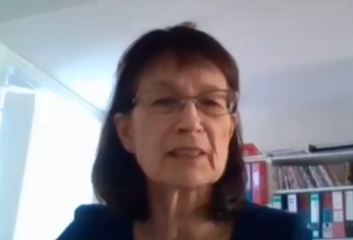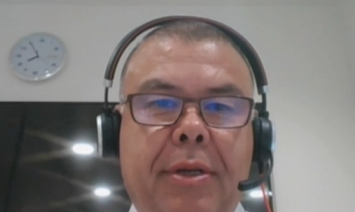 Watch our evidence session TODAY at 9:30am on the Management of the Coronavirus Outbreak.
Watch our evidence session TODAY at 9:30am on the Management of the Coronavirus Outbreak. : @CMO_England, Dr Jenny Harries, @JeremyFarrar, @devisridhar, Prof Sir John Bell, Prof Sir Paul Nurse and Prof Jonathan Van-Tam.
: @CMO_England, Dr Jenny Harries, @JeremyFarrar, @devisridhar, Prof Sir John Bell, Prof Sir Paul Nurse and Prof Jonathan Van-Tam. : https://parliamentlive.tv/Event/Index/4b2dfc60-0c0e-47fe-8b78-1db2f135a004
: https://parliamentlive.tv/Event/Index/4b2dfc60-0c0e-47fe-8b78-1db2f135a004Follow our live tweets

STARTING NOW: Our session on the management of #coronavirus
Welcome to our first panel - Professor Sir John Bell, Professor Sir Paul Nurse, Professor @devisridhar and Professor Sir @JeremyFarrar
 Watch live: https://parliamentlive.tv/Event/Index/4b2dfc60-0c0e-47fe-8b78-1db2f135a004
Watch live: https://parliamentlive.tv/Event/Index/4b2dfc60-0c0e-47fe-8b78-1db2f135a004
Follow for live tweets
Welcome to our first panel - Professor Sir John Bell, Professor Sir Paul Nurse, Professor @devisridhar and Professor Sir @JeremyFarrar
 Watch live: https://parliamentlive.tv/Event/Index/4b2dfc60-0c0e-47fe-8b78-1db2f135a004
Watch live: https://parliamentlive.tv/Event/Index/4b2dfc60-0c0e-47fe-8b78-1db2f135a004Follow for live tweets

. @JeremyFarrar says that public health can't just be turned on and off. It needs long-term investment, but has been neglected globally, including in the UK - we let down our guard and didn’t realise the power of infectious diseases
January and February were the two critical months, says @JeremyFarrar. On test and trace he says that we had a limited number of tests, and there was a concern about the level of community transmission - but in hindsight, it was a mistake not to ramp up the number of tests
. @JeremyFarrar tells us he regrets that SAGE was not more blunt and robust in its advice, but that its job was not to hold people to account. Professor Sir Paul Nurse says there has been too much "pass the parcel" and it hasn't always been clear who is in charge of the strategy
For example, Professor Sir Paul Nurse says that the decision to invest in large lighthouse laboratories, thinking that they would be delivered in time to help with the pandemic, was "clearly a big mistake" but says he has "no idea" who made the decision
Professor Sir Paul Nurse says research suggests that up to 45% of healthcare workers were infected during the peak of #coronavirus, yet none of them were being tested, including people without symptoms. "This is a major failure... healthcare workers deserve better"
Professor Sir John Bell agrees: "The failure to address healthcare testing was a major oversight, and one where I'm not entirely sure what the motives were... as the number of cases rose, NHS lab capacity was completely overwhelmed and PHE were totally out of their depth"
It wasn't a novelty to think that we should test healthcare workers, we had already learnt that from other countries, says Sir John Bell - as time went on, there was a suspicion that NHS institutions were avoiding testing so they didn't lose their workforce. That is not ethical.
@devisridhar tells us there was a playbook as to how to control #coronavirus early on - you could already see by February that South Korea was managing the situation by extensive testing and tracing, isolating carriers, face coverings and distancing, travel restrictions
The decision to abandon containment was quite dangerous says @devisridhar, given uncertainty about immunity, long-term health issues - and given we had learnt so much about how you can successfully contain #coronavirus
Lockdowns are very blunt and a measure of last resort, says @devisridhar, and as we've seen in Serbia there have been mass riots. We should be using summer to really push down infections to help us survive winter.
Sir John Bell says "Shame on us" that we were asleep to the concept that we would have a pandemic. We had 8 possible pandemics in recent years and we should have recognised it.
. @JeremyFarrar says you need to be faster than the epidemic, which is why public health is so vital. Systems need to be in place before you need them. We need to use these three months wisely or we will face a very difficult winter
. @JeremyFarrar says he doesn't believe anyone could have been arguing from a scientific or public health perspective for herd immunity. He says he does not believe SAGE ever advised that.
Sir John Bell says there is "no doubt" that if the UK had locked down earlier, we would have had a better effect from the lockdown
@devisridhar says the 13 March SAGE minutes suggest that full suppression was undesirable as it would risk a second peak. What that decision missed was that the science would deliver solutions later on - and that you can achieve national elimination with border control
On communications, @JeremyFarrar says that consistent messaging, and trust in that messaging, is vital. The public have to trust the message and the messenger, and that message has to be consistent over time. He says this has been more consistent in Scotland
This infection is not going away and we will not be done by Christmas, says @JeremyFarrar - even with a vaccine or effective treatments, humanity will be living with this virus for decades to come and we need a consistent, long-term approach
@JeremyFarrar says #shielding is particularly difficult and we should not underestimate the impact of isolation on the people asked to shield. There is no zero risk situation but with hand washing, face masks, physical distancing of one or two metres people can meet safely
Professor Sir Paul Nurse outlines what we need to put in place before the autumn:
- Clear leadership "without people passing the buck"
- Communication and maintaining trust
- Testing capacity - with a better locally-connected lab system, not just centralised lighthouse labs
- Clear leadership "without people passing the buck"
- Communication and maintaining trust
- Testing capacity - with a better locally-connected lab system, not just centralised lighthouse labs
There is definitely a lack of diversity in SAGE, and I don't think it's a good decision making forum, says Professor Sir Paul Nurse. In dealing with crises of this sort we need a multidisciplinary approach, and we need to be better practised at working together
@devisridhar says if you want to reassure people, you have to provide them with accurate data and explain it. The way to get trust is not just to tell people they will be safe, but to show them data. Not having any data is as bad a problem as publishing data that needs explaining
@JeremyFarrar says there is no doubt that overweight and obesity is a risk factor for more severe Covid-19 outcomes, and that it is a clear risk factor for other conditions, and that Government policy to encourage more healthy lifestyles is important
On care homes, @devisridhar says to protect the social care sector we have to keep transmission low, rigorously test and screen, and make clear decision-making structures and policies. What has happened in care homes is a tragedy.
Professor Sir John Bell and @jeremyfarrar agree that while there may be some natural immunity in people who recovered from SARS, public health systems are more important. Remarkable success in Vietnam has more to do with a very strong public health system
On vaccines, Professor Sir John Bell says the reality is that this pathogen is here forever. The vaccine is unlikely to have a durable effect so we will have a continual cycle of vaccinations and more disease. The idea that we will eliminate coronavirus completely is unrealistic
Our first panel has now concluded. Thank you to our witnesses, @devisridhar, @JeremyFarrar, Professor Sir John Bell and Professor Sir Paul Nurse, for their contributions.
We are now questioning our second panel of witnesses –
@CMO_England
Professor Chris Whitty, Dr Jenny Harries and Professor Jonathan Van-Tam.
Television Watch live: https://parliamentlive.tv/Event/Index/4b2dfc60-0c0e-47fe-8b78-1db2f135a004
Follow for more live tweets
@CMO_England
Professor Chris Whitty, Dr Jenny Harries and Professor Jonathan Van-Tam.
Television Watch live: https://parliamentlive.tv/Event/Index/4b2dfc60-0c0e-47fe-8b78-1db2f135a004
Follow for more live tweets

Asked about the timing of lockdown, @CMO_England states that he is confident that ministers at the time followed the advice given by SAGE with a delay that was no more than you would reasonably expect given the difficulty of the situation.
@CMO_England agrees with previous witnesses that the UK under-invested in public health - he says that every time there's a crisis, we say that more investment is needed, and then memory fades. There is a continued issue of investment.
@CMO_England says that other countries put more emphasis on the case isolation. That was possible for the UK to do in the early stages, but not later on. When the wave came from Europe we did not have capacity for the scale of testing, case finding and isolation needed.
@CMO_England says SAGE was consistent in saying we needed considerably more testing capacity, but test, trace and isolate requires more than just testing capacity and we did not have the infrastructure - you cannot suddenly switch these things on
Given the capacity we had, @CMO_England says he continues to believe that the advice to stop community testing was the right one. The decision was entirely practical.
On NHS staff testing, @CMO_England says we would be at the margins of capacity if we were to do routine NHS staff testing even now, but that this is improving
We need to know more about how frequently to routinely test NHS staff - if there was a big surge, I would be in favour of going ahead but given where we are with knowledge and capacity, it is better to do surveillance and continue with studies says @CMO_England
Jenny Harries agrees that highlighting the principles behind guidance will help people to take forward guidance in what they do, because it's impossible to have guidance that will dictate every move that you make during the day
Discussing scientific advice, @CMO_England says there was a complicated debate over the guidance on mass gatherings because of the risk of people congregating in other places, e.g. pubs. On face masks, he says the scientific consensus has changed, not just in the UK
@CMO_England says that at this point in time, our PPE supply lines are now much more secure - but if we have a major surge in the winter that is simultaneous with other countries, it would be foolish to say that the risk has gone away
Asked about the make up of SAGE, @CMO_England says there were certainly members of SAGE who have an understanding of the social care sector, and there were other routes for people in social care to give advice
On care home deaths, @CMO_England says his enthusiasm for blaming people is zero. He says every country with a care sector has not handled this well. In retrospect, the impact of those working in multiple homes, or not being given paid sick leave, were not taken into account.
Asked about testing and tracing community infections, @CMO_England states that we were so far away from having the infrastructure needed to deliver it at scale that fundamentally there was no possibility of achieving test, trace and isolate in March
On data about deaths during the pandemic, @CMO_England says the metric that really matters at the end of the day is excess mortality, because it catches impacts that are both direct and indirect from Covid-19
@CMO_England says the way @PHE_uk measures deaths did not make his job more difficult - he states that all ways of measuring deaths are flawed - the key thing is to do it systematically to establish a trend line
Asked about vaccination, Jonathan Van-Tam says we may get a vaccine targeted at a particular population. Vaccine effectiveness varies, targeting a relatively small proportion at the very highest risk will deal with those who have the risk loaded against them at the moment.
@CMO_England says that we are very excited by and proud of the UK's vaccine work - but no one should be under any illusions: the chances of us getting a vaccine before Christmas are very low.
Professor Van-Tam says he is more optimistic about getting a vaccine this side of Christmas but we won't have data on how it can be safely staged with the flu vaccine
@CMO_England says we are very lucky to have outstanding Directors of Public Health in this country and that more data is now being shared with local authorities at postcode level
Our session on the management of #coronavirus has ended
Thank you to all our witnesses @CMO_England, Dr Jenny Harries, @JeremyFarrar, @devisridhar, Prof Sir John Bell, Prof Sir Paul Nurse & Prof Jonathan Van-Tam
 Rewatch the session https://parliamentlive.tv/Event/Index/4b2dfc60-0c0e-47fe-8b78-1db2f135a004
Rewatch the session https://parliamentlive.tv/Event/Index/4b2dfc60-0c0e-47fe-8b78-1db2f135a004
Click for more
for more
Thank you to all our witnesses @CMO_England, Dr Jenny Harries, @JeremyFarrar, @devisridhar, Prof Sir John Bell, Prof Sir Paul Nurse & Prof Jonathan Van-Tam
 Rewatch the session https://parliamentlive.tv/Event/Index/4b2dfc60-0c0e-47fe-8b78-1db2f135a004
Rewatch the session https://parliamentlive.tv/Event/Index/4b2dfc60-0c0e-47fe-8b78-1db2f135a004Click
 for more
for more

 Read on Twitter
Read on Twitter